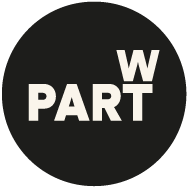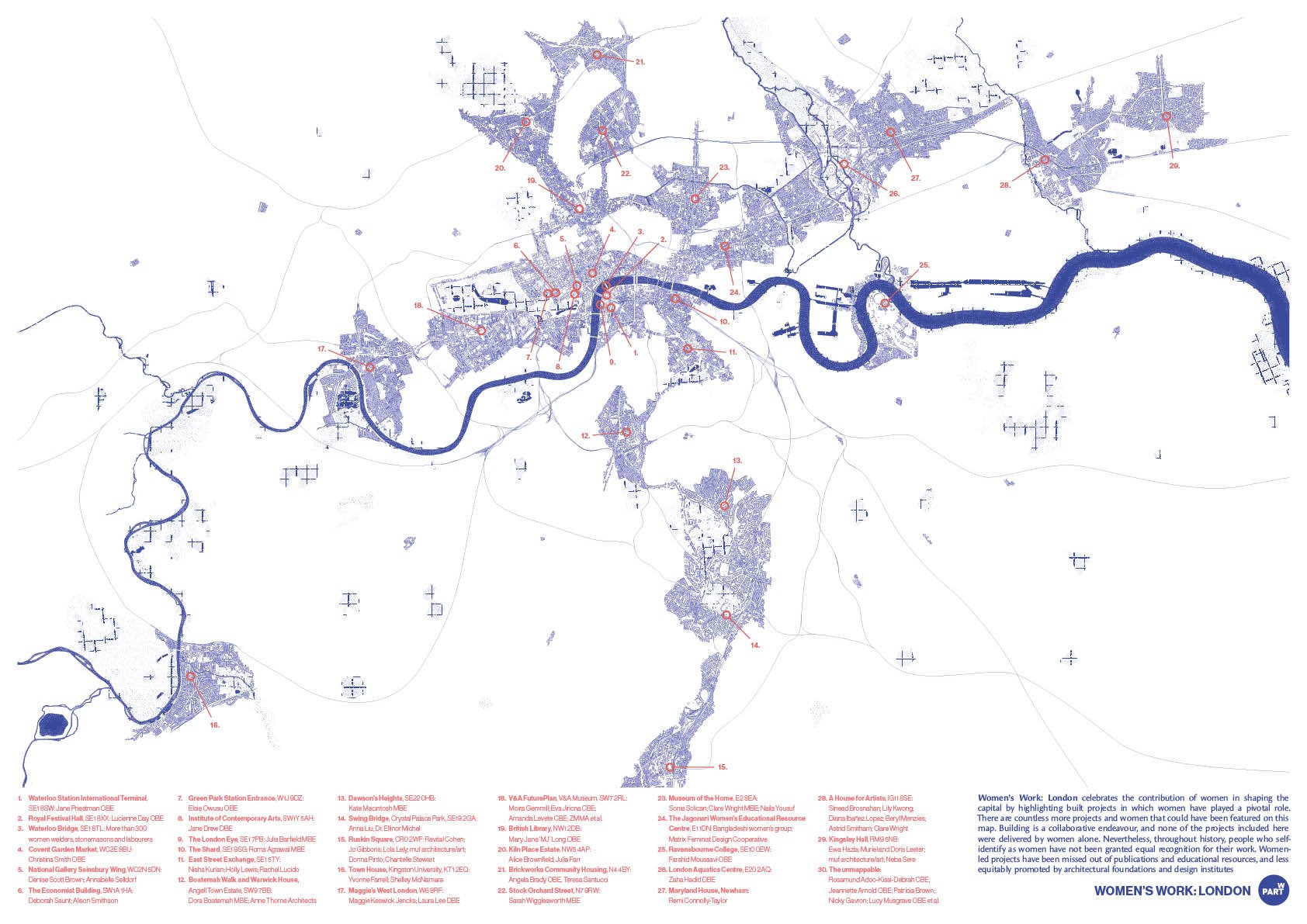Women’s Work: London
This campaign seeks to address the huge gap in how projects by women are so often missed off digital and printed maps and in archives.
The mapping project aims to address the fact that throughout history, female-centred design projects have not been granted equal recognition to the work of men via resource packs at school level, in universities, and in precedents promoted by architectural foundations and design institutes.
The London map expands on work we have begun and - with much needed funding - we will be seeking to go on to spread this study of projects around the UK and beyond.
From the construction of Waterloo Bridge to the design of the British Library; the refurbishment of the Supreme Court to the design of social housing, the crowdsourced map will seek to shine a spotlight on the immense contribution of women to London.
In 2022, Part W produced an initial map of 20 projects that was included in the exhibition How We Live Now: Reimagining Spaces with Matrix Feminist Design Co-operative. Subsequent to this Part W launched an open call for nominations to expand on that first step and gather a diverse and intersectional range of projects. From over 150 projects, expert judges whittled down the nominations to a selection of 30 projects to appear on the map.
“The map will highlight lesser known stories of women’s significant contribution to the city around us, and spark conversations about who is (and is not) involved, represented and recognised in the production of our built environment”
This Part W map campaign seeks to proactively celebrate the intersectional work of those who self-identify as women from all backgrounds. It aim to celebrate the diverse design work of all women, Black women, women of colour, members of the LGBTQ+ community and women who have diverse religious beliefs – and offer up examples of built works that can be visited and learned from. We invited suggestions for built projects in Greater London where a woman or women have played a pivotal role in its design development, conservation, commissioning or construction.
These women could be architects, engineers, place-makers, landscape architects, designers, commissioners, conservationists, activists, community groups, citizens, etc. Projects already included on the first leg of the map include the Jagonari Women's Centre led by feminist collective Matrix, Waterloo Bridge built by female construction workers or Dawson’s Heights social housing designed by architect Kate Macintosh. New suggestions were invited for schemes that are realised and still exist in built form.
The first phase of the map was born during Covid when there was a clear need to escape screen-based living, to get out in the open air and look at what is around us. Part W intends to arrange future walking and cycling tours to visit sites that are selected for the map and this campaign promotes the value of visiting, seeing and exploring projects in real life.
Collective involvement
Part W crowdsourced over 150 suggestions for Women’s Work: London. That’s all down to our incredible supporters, so we thank you for taking the time to research places across London worth celebrating.
Part W is treating this as a test project with a view to creating future ‘Women's Work' maps for other areas. Extending this project will require funding to enable us to make this happen. If you are interested in funding the project, do get in touch.
Crowdsourced nominations have now been been curated by Part W to form a printed 'Women's Work: London' map and inform associated educational outreach with schools in London. Not all projects suggested will be able to be included on the physical map but the growing list of UK wide suggestions can be viewed in this live document as a rich resource. A printed copy of the map can be purchased here.
“For too long the work of women in design has been undervalued and the contribution of women has not been accounted for in mapping studies, written texts and in studies that promote role model examples of who designs our cities. This map continues work we’ve already begun recording built projects by diverse women in London - our aspiration is to achieve funding and support from others that allow Part W to expand this work UK wide and beyond.”
Extract from the Women’s Work map by Edit
Our Statements
In Solidarity… An Open Letter
We, the Part W collective, speak out against the murder of George Floyd and the violent actions of the police. We stand in solidarity and call for others to join with us in shouting out that black lives matter.
An Open Letter…. In mourning, and ideas for change
Part W is appalled by the murder of Sarah Everard. As an action group of women working in the built environment, we‘re heartbroken by the seemingly casual attitudes of many in society towards the safety of women and girls in cities - and the failure to bring about change.


